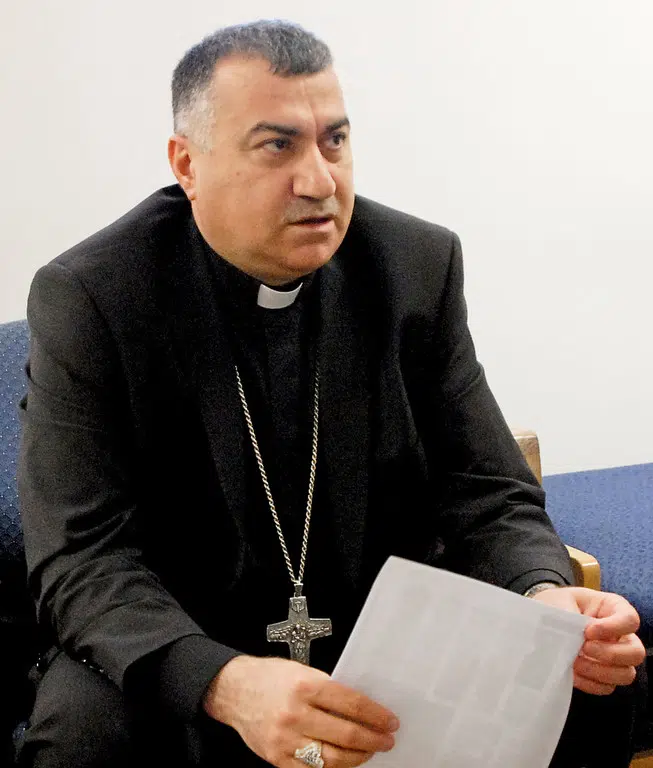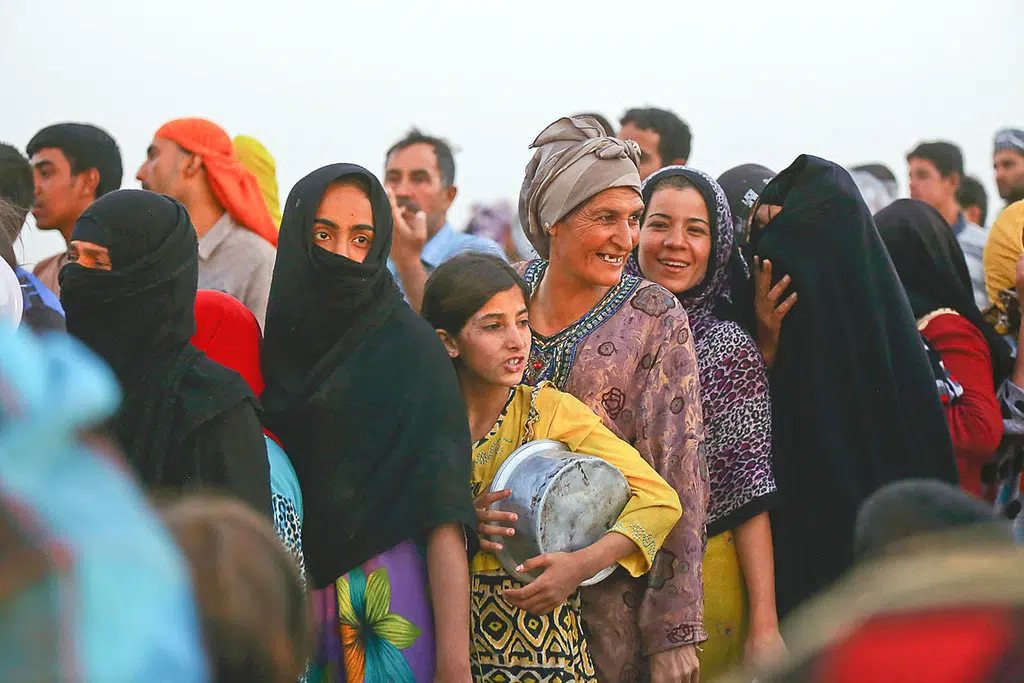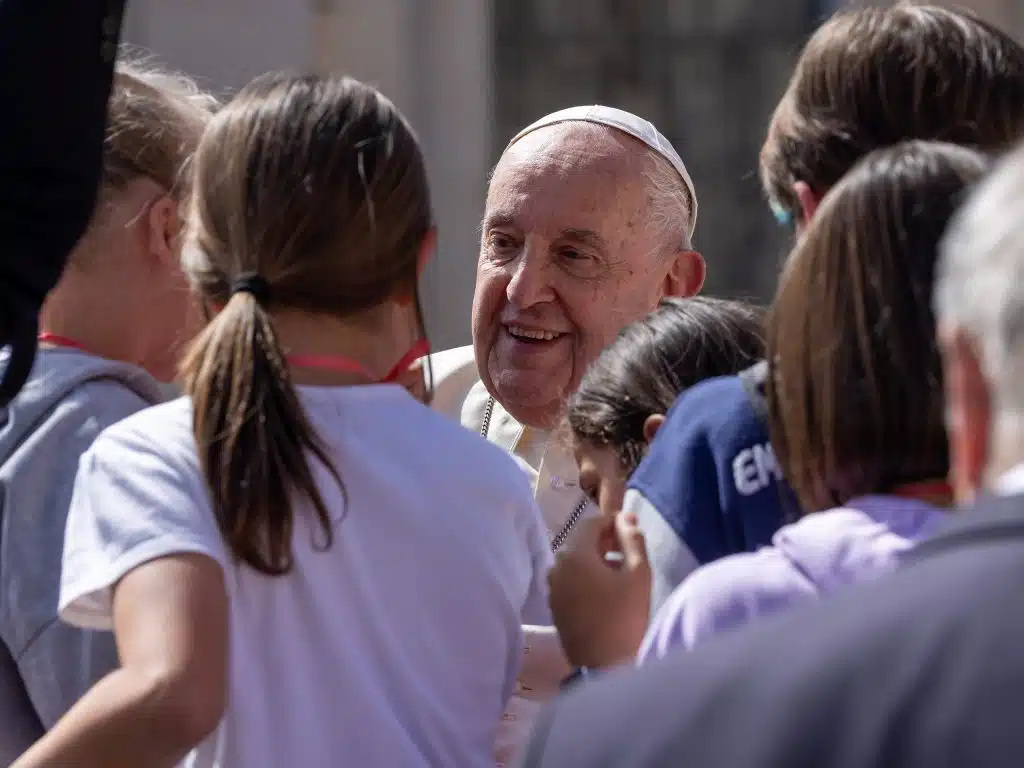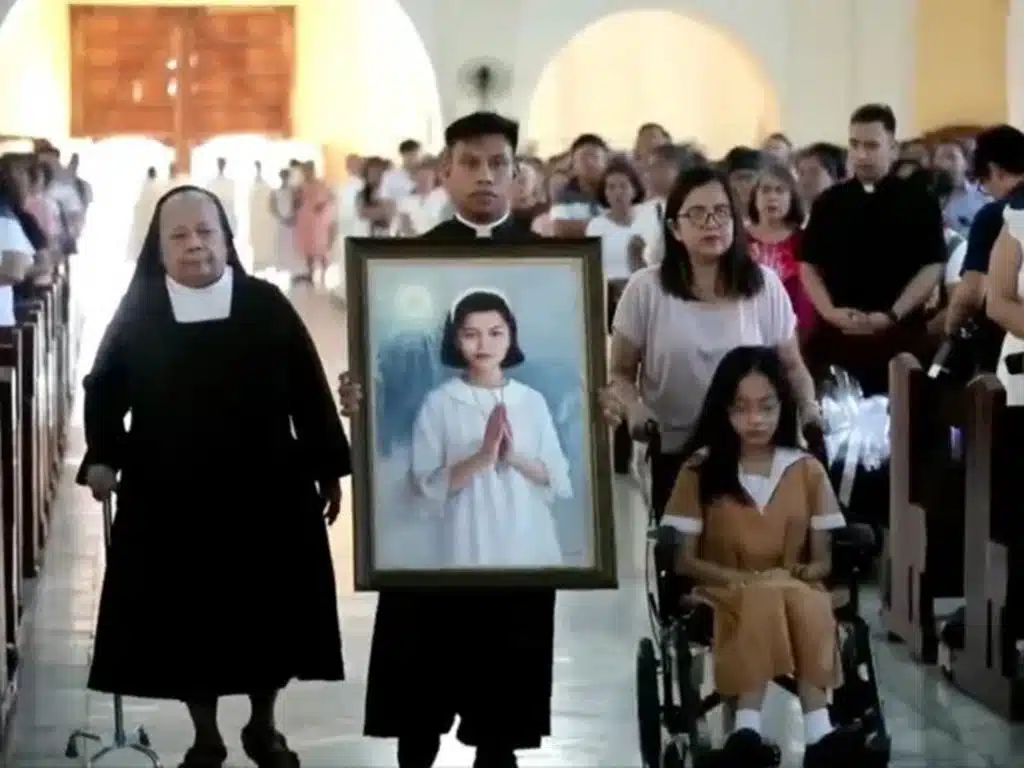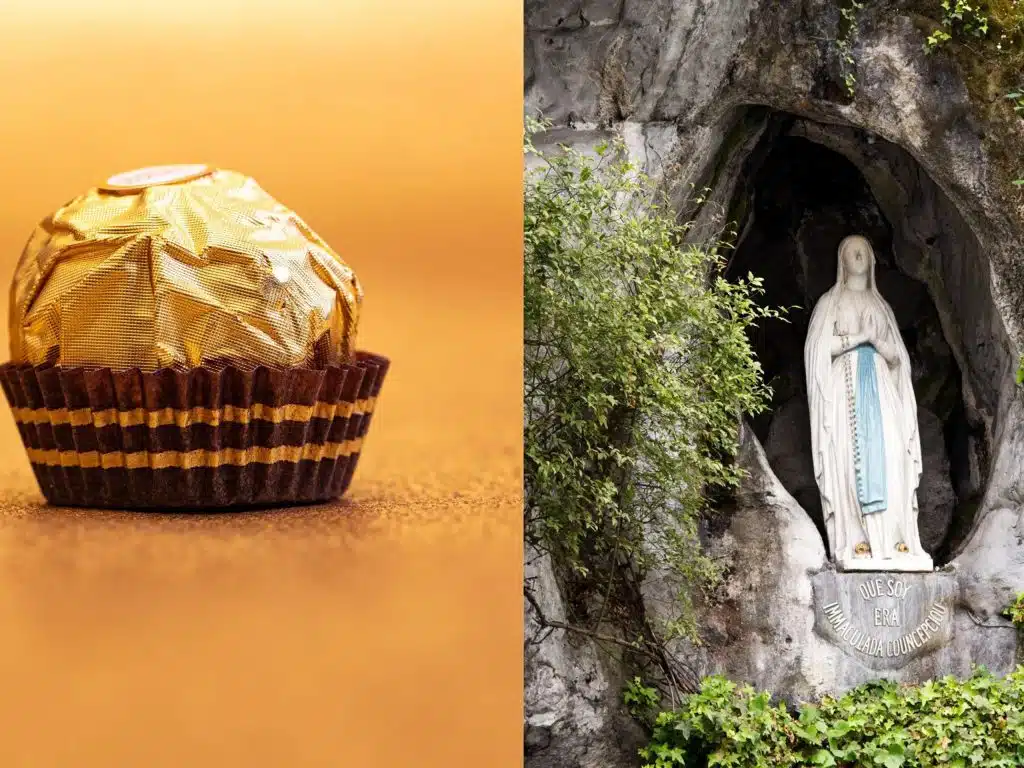The dining room at the home of the Little Workers of the Sacred Heart in Washington was abuzz Aug. 21 as Chaldean Archbishop Bashar Matti Warda of Irbil, Iraq, shared breakfast with an intimate group of Catholic journalists and members from Christian advocacy groups.
The archbishop was visiting the religious community as part of his current United States tour, which included a day and a half in Washington, to spread the word about the Islamic State’s persecution of Iraqi Christians. As he met with members of the press, the U.S. Conference of Catholic Bishops and the State Department, Archbishop Warda called on Americans to recognize the violence as genocide.
“If the (U.S.) government accepts that this is genocide, then the people are not forgotten,” he said. “Genocide status would help the world not repeat the same mistakes and sins of the past. (The world) cannot just watch and say, ‘It’s a pity.’ We cannot wait another 20 years. Do justice to (Iraqi Christians). Give them hope.”
When Little Workers’ Sister Dede Byrne, also a practicing physician for Catholic Charities, visited Irbil with a Georgetown University medical student earlier this summer, she urged the archbishop to come to Washington to give Americans a sense of the situation.
According to the international organization Human Rights Watch, the fight against the Islamic State has left Iraq with more than 2 million internally displaced people.
An excerpt from HRW’s country profile of Iraq reads:
“ISIS has committed numerous atrocities, including suicide attacks in civilian areas, summary executions, sexual assault and forced marriage, and the killings of religious and ethnic minorities.”
Christians are among Iraq’s religious minorities. Per numbers published by the CIA World Factbook, 0.8 percent of Iraqis are Christian; 99 percent are Muslim. A note in the World Factbook states that Iraq’s Christian population may have halved following the fall of Saddam Hussein’s regime in 2003 when many fled to Syria, Jordan and Lebanon.
Archbishop Warda said that when the Iraqi city of Mosul fell to the Islamic State in June, Christians were given a false choice: convert to Islam, pay exorbitant taxes to continue practicing their religion or die. Between “leaving everything or facing the sword,” he said 1.25 million Christians chose the former and sought refuge in Irbil, located in the Kurdish region of Iraq. Almost overnight, “the city census doubled,” said Sister Dede.
“People slept in gardens, classrooms and hallways,” Archbishop Warda said.
Though he thanks Caritas, Catholic Relief Services, the Knights of Columbus and other organizations for their generosity, he explained that remaining unfavorable circumstances make the displaced, who “are tired,” “cry for their difficulties.”
“Kurdistan is a safe place for Christians to live … But they are living in a region that is burning,” he said. “As a church, we still (maintain our pastoral practice) and education, but we cannot deny the fact that our people are imprisoned by worry.”
Archbishop Warda stressed that Christians around the globe should treat their Muslim neighbors with “respect” and “reverence,” rather than allowing their anger toward the Islamic State to influence their behavior.
“We cannot be fertile land for throwing seeds of hatred,” he said. “We cannot be another channel for hatred and sin.”
Sister Dede said that Americans can assist Iraqi Christians with prayer, donations to relief services and, if possible, volunteer their time in Irbil, especially if they have medical training.
“We are living in a very long Good Friday,” Archbishop Warda said. “We can sense the Easter coming. We hope it’s not too long.”
Stoddard can be reached at [email protected].
